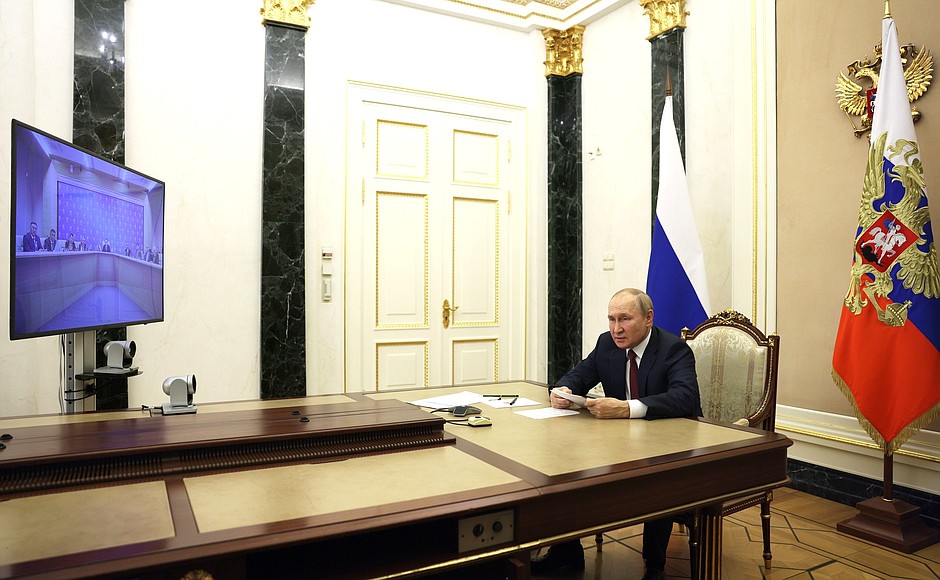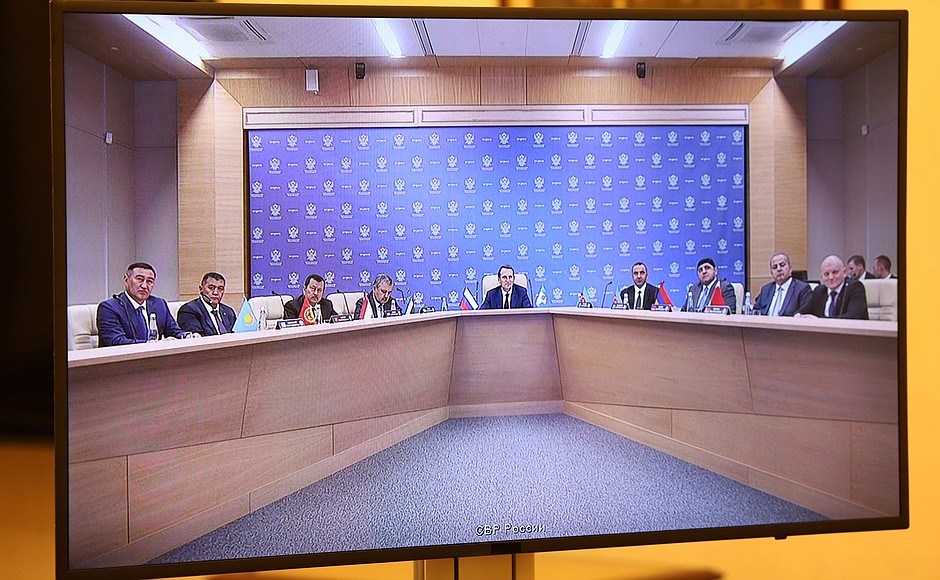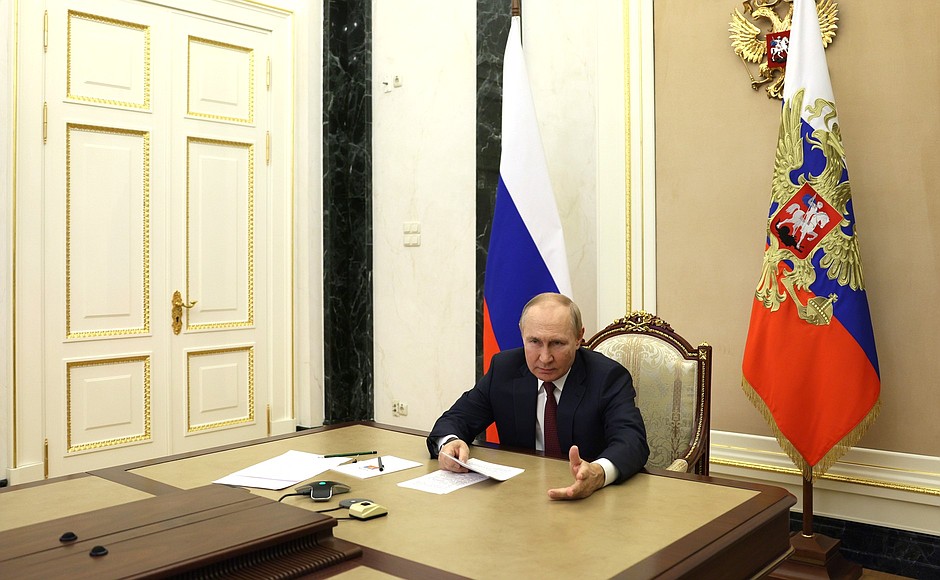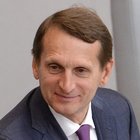The President’s opening remarks at the meeting with the heads of security agencies and intelligence services of the CIS countries
President of Russia Vladimir Putin: Mr Naryshkin, colleagues.
Good afternoon.
I was hoping to see you in person and to talk more closely but, unfortunately, sanitary restrictions still exist. That said, I would like to welcome the heads of security agencies and intelligence services of the CIS countries who have gathered for a regular meeting in Moscow. Our meeting is yet further evidence of the permanent attention paid by the leaders of the CIS member states to enhancing collective security and strategic partnership.
As always, our agenda consists of a broad range of issues linked with the reliable protection of our countries against internal and external threats. The number of threats is not dropping in today’s conditions – on the contrary, old conflicts are being exacerbated and new and serious challenges are arising.
We are seeing the difficult process of the forming of a more just world order. This process is accompanied by the well-known problems that lie on the surface. The old unipolar hegemony is inexorably collapsing. This is an objective reality that the West is categorically refusing to accept. We see all the consequences of this. Clinging to the past and trying to pursue a policy of dictate in all areas – from international relations and the economy to culture and sports – the notorious collective West is creating more and more problems and crises. In the process, it is not stopping at anything as it exerts pressure on the countries that choose a sovereign path of development, that do not want to obey it but that want to choose their own path and future independently and freely, and maintain their culture, traditions and values.
In the current challenging and tense international situation, external security and internal stability are the primary conditions for the gradual economic and social development of our countries. If we want to put up a truly solid barrier against existing and potential threats, the CIS countries must take consistent and coordinated action, continuously strengthening mutual support. It is the only way for us to protect our interests on the international scene and drive back any ill-wishers.
Pursuing their goals, our geopolitical adversaries, our opponents, as we said recently, are ready to expose anyone, everyone, any country to a blow, turning it into a ground zero of a crisis, instigating “colour revolutions” and unleashing bloody massacres. We have seen this many times before.
We also know that the West is devising scenarios for inciting new conflicts in the CIS. But we already have enough of them. Just look at what is happening between Russia and Ukraine, what is happening on the borders of other CIS countries. Indeed, all of this is the aftermath of the collapse of the Soviet Union; this much is understandable. But the risks of destabilisation are growing again, including the risks of destabilisation in the entire Asia-Pacific region.
Your agencies are on the cutting edge – at the forefront of the fight against the most dangerous threats, and your missions are largely similar: to ensure peace and stability in your countries, strengthen national sovereignty, and promote the development of integration ties.
The coherence and coordination of intelligence services and security agencies certainly play an important role in pursuing these goals. We have accumulated rich experience in this kind of cooperation, and we must use it to the maximum extent.
One of our common priorities is monitoring current developments. It is important to analyze emerging risks and challenges, to determine their nature, scale and vector of development. This is the most important condition for the effective neutralisation of such threats.
As before, the fight against international terrorism remains a key focus of your work, and so are transnational crime, illegal armed groups, and the illegal circulation of weapons and drugs.
The situation at the CIS borders calls for special attention. It is there that many common security threats are taking shape. If not mitigated in a timely manner, these threats could adversely affect the situation in our countries.
A difficult situation has developed in Afghanistan as you know all too well. Terrorist and extremist groups continue to operate there. We see this in the bloody act of terrorism that took place near the Russian Embassy in Kabul on September 5, which claimed the lives of our citizens.
Clearly, the international terrorists that remain in Afghanistan can pursue criminal plans against the bordering countries, including the CIS states. They may try to recruit accomplices and create new cells or reactivate the “sleeper cells” and supply these militants with arms. We need to respond promptly to all these attempts, in particular, by making active use of the potential of the CIS Anti-Terrorism Centre.
It is important to reliably protect the information space in the commonwealth. The number of cyberattacks and attempts to destroy the operation of critical infrastructure in our countries is growing every year. This requires active countermeasures and constant attention on behalf of our specialised agencies.
And of course, it is necessary to promote integration ties within the CIS. The indicators of trade, production and investment cooperation between Russia and the other CIS countries are on the rise despite the pressure, blackmail and unlawful sanctions from the United States and its satellites. Clearly, our cooperation is a serious resource for the growth of our national economies and the strengthening of their competitive abilities and positions in world markets.
Comrades!
We have long been convinced that the pooling of efforts by our agencies and services is expanding their potentialities, allowing them to achieve more effective results and to use their resources more rationally. So, it is necessary to continue to intensively develop cooperation – from information exchange to joint special operations and personnel training.
I am confident that the results of the current session will promote the productive work of the secret services of the CIS countries and will open up new vistas for multifaceted cooperation.
And of course, I wish you success in your responsible work for the benefit of our countries and peoples.
Thank you for your attention.



